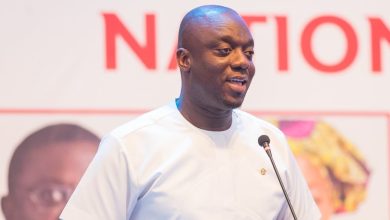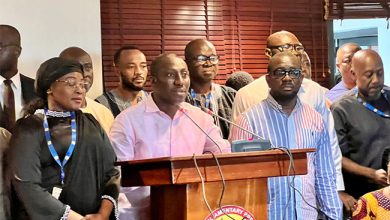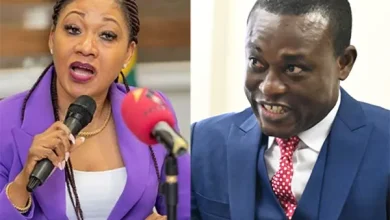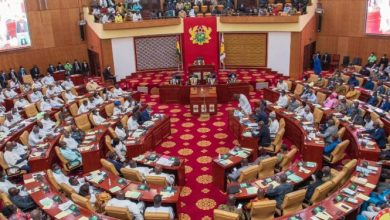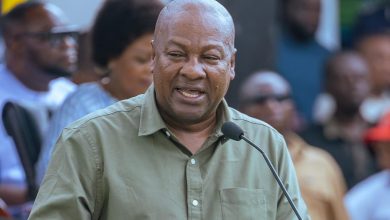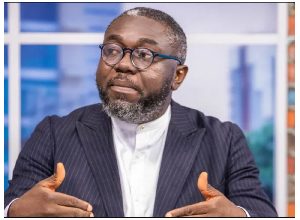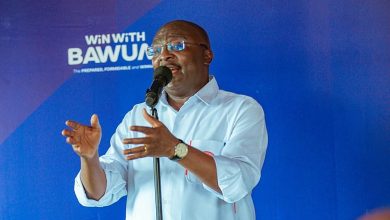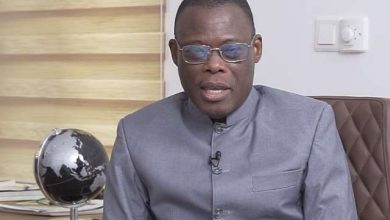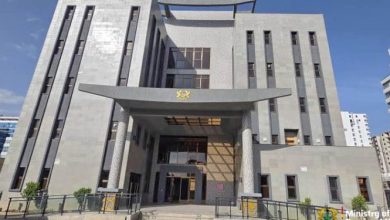NPP flagbearership: Kwabena Agyepong launches campaign
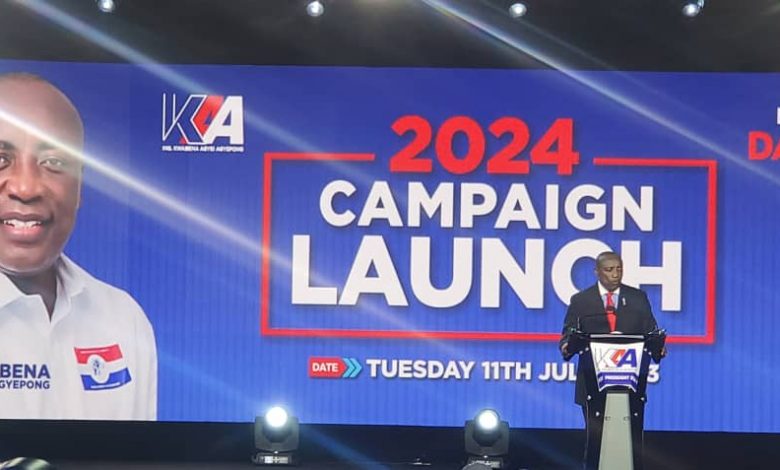
A New Patriotic Party (NPP) presidential hopeful, Kwabena Agyei Agyepong, has launched his campaign dubbed “the New Dawn” with a six-point strategy to tackle the country’s economic challenges.
At a well attended and colourful event held at the Silicon House Production Studios at Tesano in Accra, yesterday, Mr Agyepong said his priority when given the nod, first as the NPP flag bearer, and subsequently as the President after the 2024 election, would be to form a lean government.
“In this New Dawn, I envision a Ghana that is economically robust and resilient, fiscally responsible, socially cohesive and fully accountable to the good people,” he stated as he outlined his strategy.
They are ensuring a lean government; enforcing law and order, imposing discipline as well as ensuring compliance of rules and regulations; cutting waste in the public sector; restoring meritocracy and professionalism in the civil and public services; urban regeneration and renewal; and protection of intellectual property in the entertainment and sports sectors.
Event
The event was attended by some NPP stalwarts, including an economist, Kwame Pianim, who chaired the function.
The wife of the aspirant, a media and communication lecturer at the University of Media Arts and Communication (UniMAC) at the Ghana Institute of Journalism (GIJ) Campus, Dr Lawrencia Agyepong, attended the event.
Also in attendance were a former Member of Parliament for Atiwa, Yaw Baning-Darko, a former Foreign Minister, Akwasi Osei-Adjei, some executives of the Ghana Institution of Engineering, among others.
The occasion was used to launch Mr Agyepong’s personal website-kaafor2024.com.
A documentary highlighting his political achievements was played for the gathering to watch.
Downsize
On downsizing the government, the presidential aspirant who is also a former General Secretary of the NPP, explained that it would be done to ensure that the government worked efficiently and effectively to deliver to the aspirations and expectations of the Ghanaians.
“The Ministries will be reconfigured to align with the constitutional Cap of 19 Cabinet ministers to be assisted by an equal number of deputies in addition to the 16 in the regions, making up a team of 54,” he stressed.
To ensure that the strategy worked perfectly, Mr Agyepong said stakeholder consultations would be undertaken to introduce an upper limit of nine Judges to serve on the Supreme Court (SC) and possibly remove the retirement age of 70 years to allow SC judges to serve until they were unable to perform their functions.
On enforcement of law, order and discipline, he announced a zero tolerance policy anchored on a “drastic penalty regime coupled with a strong political will to punish those who tinker with the public treasury”.
The law, he noted, should work to uproot corruption, protect individual and property rights.
On public sector wastage, Mr Agyepong indicated his resolve to ensure that there was value for money in public procurement.
He pledged to reduce significantly “unbridled politicisation and interference to restore meritocracy and professionalism”.
The presidential hopeful said the current urban ecosystem was dysfunctional, saying a structured, coordinated and integrated approach must be adopted and implemented to create more liveable cities and human settlements where basic needs did not become a permanent dream.
Passion
On entertainment and sports, he pointed out that “my passion for sports is public knowledge, nevertheless, Ghana cannot be the jack of all sports and master of none.”
He explained that in the creative arts industry, he would pursue the issue of protection of intellectual property and copyright.
Changing narrative
The aspirant earlier took the audience through the era of independence till date, and questioned whether as “Ghanaians, we have lived the dream of showcasing that we are capable of managing our own affairs?
When we look back, are we glad to be where we are today?”
Mr Agyepong expressed regret that poor sanitation, galamsey, high unemployment, deficient city planning resulting in a chaotic explosion of slum settlements, falling standards of education, perilous healthcare, undernutrition, land conflicts and more, were some of the worrying situations in the country.
Source: graphic online

